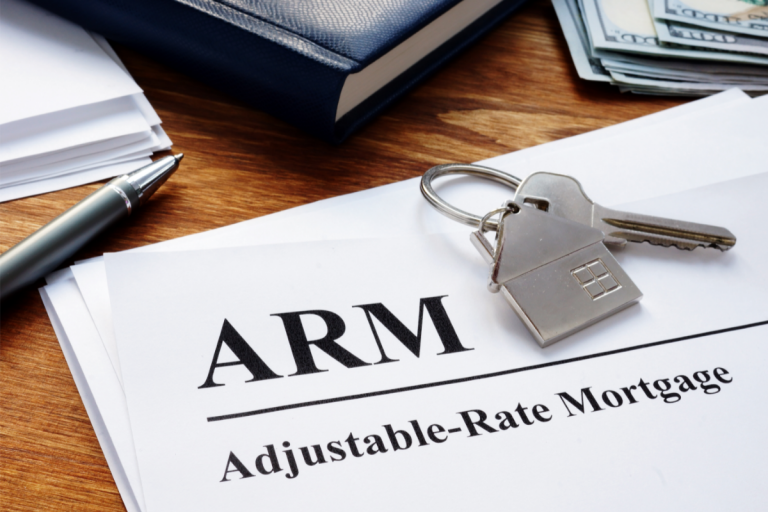
As interest rates started climbing in recent months, more homebuyers are turning to adjustable-rate mortgages to increase their buying power. An adjustable-rate mortgage (ARM) starts out with a lower, fixed interest rate for a set period of time, such as three, five, seven, or ten years. After that time period, the loan adjusts to a variable rate. This differs from a fixed-rate mortgage that keeps the same interest rate for the life of the loan.
Advantages of an Adjustable-Rate Mortgage
Because the interest rate is lower for the initial period of the loan, monthly mortgage payments are significantly less than a 30 year fixed-rate mortgage. This gives you more buying power so you can afford a more expensive home. Adjustable-rate mortgages can be a good idea and save you money if you plan to be in your home for a shorter period of time or pay off the mortgage before the rate changes. You can take advantage of the lower rate and sell your home or pay off your mortgage before the adjustable phase starts. There is also the chance that interest rates fall when your loan adjusts. In this case, your monthly payments will also decrease.
Disadvantages of an Adjustable-Rate Mortgage
The biggest risk with this type of mortgage is that when your loan adjusts to the variable interest rate, rates have increased which in turn increases your monthly payments. Can you afford to take on that added risk? Some borrowers may have a difficult time making the larger loan payments and be stuck with a mortgage they can no longer afford.
Is the Risk Worth It?
There are many considerations to take into account with adjustable-rate mortgages that include your long-term goals and your comfort level with taking on the uncertainty of interest rates. Another factor to consider is the difference between the adjustable rate and the fixed rate. The larger the difference, the more consideration you should give to an ARM. The adjustable rate will save you more in the shorter term and make refinancing at a later date more attractive. Adjustable-rate mortgages are more complex than fixed-rate mortgages and have complicated rules, fees, and structures that you’ll want to be sure to fully understand before signing on the dotted line. Work with your Zuber agent and lender to determine the option that is right for you.